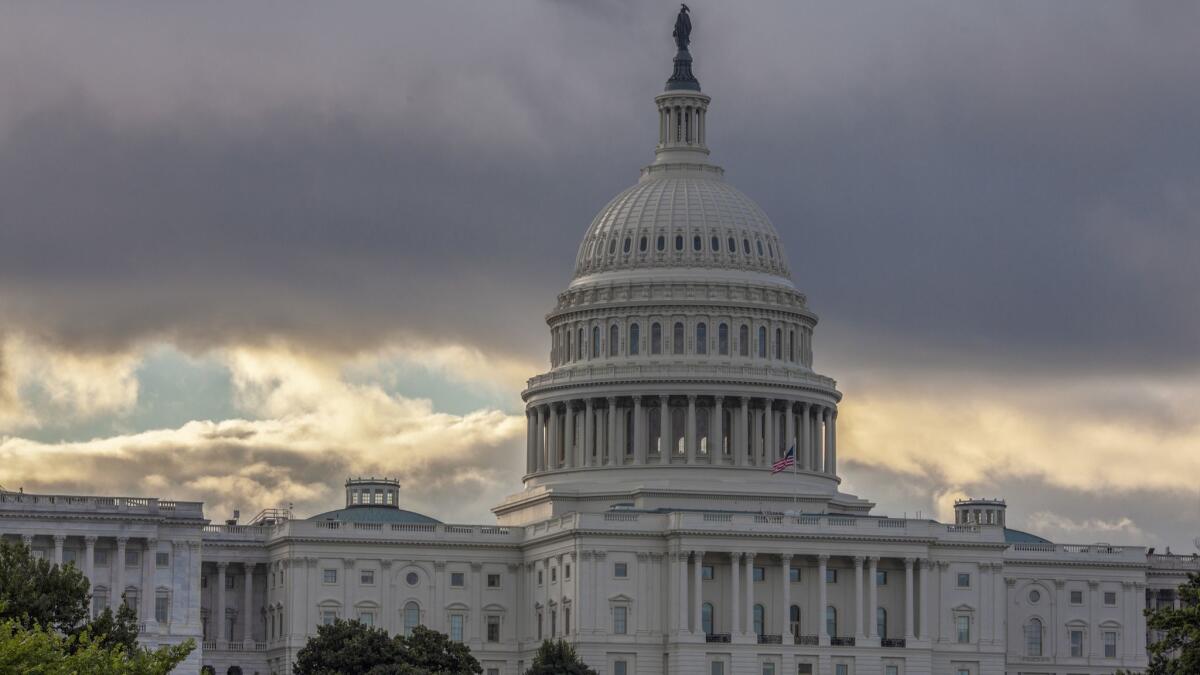U.S. economy will grow 3.1% this year and then slow, Congressional Budget Office projects

- Share via
The U.S. economy is projected to grow 3.1% this year as more government spending and tax cuts help propel an expansion, the Congressional Budget Office said Monday.
But the robust run of growth may stall as early as next year, with the U.S. economy expected to slow in 2019 and during the following decade once temporary government policies expire, according to the nonpartisan CBO’s report.
Economic growth will slow to 2.4% in 2019 and to 1.7% in 2020, staying at about that level over the next decade, the CBO projected
If the CBO’s numbers prove correct, U.S. economic growth will have jumped from 2.6% in 2017 to 3.1% in 2018. Those numbers mark a significant improvement over the aftermath of the Great Recession, which saw a tepid annual growth rate of about 2.2%.
“There is an acceleration of growth that is significant,” said Allen Sinai, chief economist and strategist at Decision Economics. “A year or so ago, 3.1% in annual growth did not look doable. But it has happened.”
The CBO’s report suggests the economy is being temporarily juiced, in part by a large government spending package passed this spring and the Republican tax law passed last fall, the latter of which has many provisions set to expire before the end of the decade.
President Trump celebrated projections that the economy grew at a rate of about 4.2% this spring, a number expected to be artificially high because of a one-time surge in agriculture exports due to concerns the administration would impose tariffs on those products.
“You’re going through a nice sugar rush provided by the federal stimulus, which is going to slowly come back down next year,” said Satyam Panday, senior economist at S&P Global. “We’re seeing a near-term positive effect, but these policies are not going to have a big impact on the longer-run growth.”
The CBO’s analysis is similar to those of a number of independent firms and Wall Street analysts.
Stein writes for the Washington Post.
More to Read
Inside the business of entertainment
The Wide Shot brings you news, analysis and insights on everything from streaming wars to production — and what it all means for the future.
You may occasionally receive promotional content from the Los Angeles Times.










